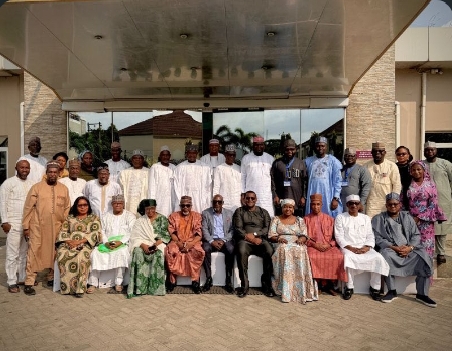In a decisive move to tackle Nigeria’s immunisation gaps, lawmakers from four northern states, Bauchi, Borno, Kano, and Sokoto, have launched a coordinated legislative push to reduce the number of zero-dose children across the country.
The initiative, now known as the “Lagos Declaration,” emerged from a two-day Legislative Retreat on Immunisation Equity held in Lagos from July 18–19, 2025.
ZDLH Hosts Legislative Retreat in Lagos to Strengthen Immunization Efforts
The retreat was convened under the Zero Dose Learning Hub (ZDLH) initiative, with the theme: “Legislative Partnerships for Reaching Zero-Dose Children in Nigeria.”
This was contained in a communique signed by the Chairman House Committee on Healthcare Services at the National Assembly, Hon. Amos Gwamna Magaji.
He described the effort as a critical step toward ending preventable child deaths in Nigeria due to a lack of vaccines.
ZDLH CoP Presents 2024 Immunization Budget Scorecard to KNHA
“We are confronting a preventable tragedy. Too many Nigerian children are still missing life-saving vaccines. This retreat is about taking legislative responsibility for health equity,”
The retreat brought together stakeholders from the National Assembly, State Houses of Assembly, and State Primary Health Care Development Agencies (SPHCDAs) from the four states.
Deliberations at the retreat revealed several critical obstacles impeding immunisation coverage:
The absence of routine immunisation budget lines in many states threatens sustainable vaccine financing.
Low vaccine uptake is caused by socio-cultural resistance, geographical inaccessibility, and conflict-related disruptions.
The lack of governing boards in several SPHCDAs undermines coordination and effective governance.
These issues contribute to Nigeria’s ranking among the top five countries globally with the highest number of zero-dose children—children who have not received even a single dose of any routine vaccine.
The communique outlined several commitments including
Convening a national meeting of Health Committee Chairmen from all 36 states by Q4 2025.
Advocating for dedicated immunisation budget lines in the 2026 state budgets.
Conducting oversight visits to ZDLH-supported states—starting with Borno—to track progress on:
The Basic Health Care Provision Fund (BHCPF)
Counterpart funding
Health Memoranda of Understanding (MoUs)
Additionally, lawmakers pledged to:
Strengthen their role in Decentralised Immunisation Monitoring (DIM) surveys.
Carry out quarterly oversight to ensure the timely release and effective use of health funds.
Brief local government chairpersons and legislators from ZDLH-supported LGAs on survey results to deepen accountability and community ownership.
“This isn’t just a health issue—it’s a national development emergency,” Magaji stressed. “The time for fragmented efforts is over. The legislature must lead from the front.”
According to the World Health Organisation (WHO) and UNICEF, over 2 million Nigerian children remain unvaccinated, most of them living in rural, hard-to-reach, or conflict-affected areas.
The Zero Dose Learning Hub, supported by a consortium of development partners, aims to test and scale innovative solutions in priority states using the IRMMA Strategy: Identify, Reach, Monitor, Measure, and Advocate.
With the National Assembly now actively engaged in the fight against zero-dose prevalence, stakeholders are watching closely to see how these commitments translate into sustainable action—especially at the state and local government levels.
For many, the Lagos Declaration represents not just a symbolic step but a pivotal moment in Nigeria’s efforts to ensure that every child, everywhere receives life-saving vaccines.





